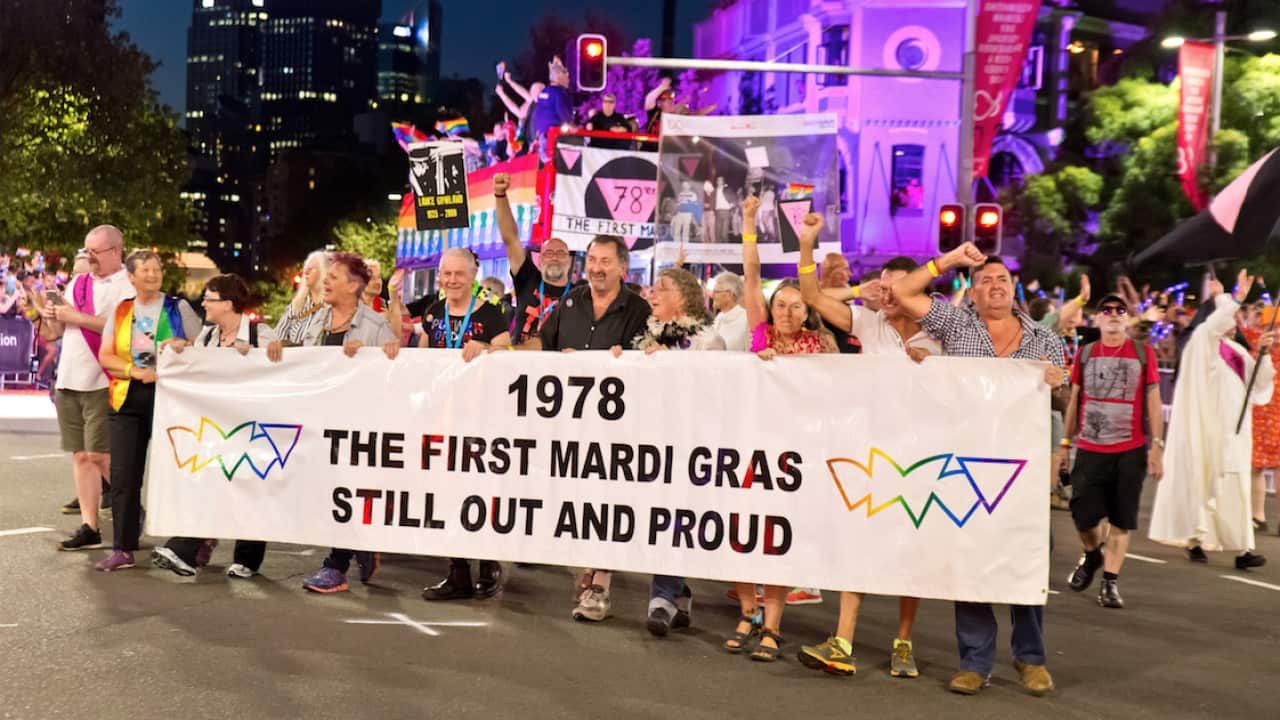Why, you may wonder, did the 78ers decide upon a term that means 'Fat Tuesday' to describe the inaugural LGBTQIA+ event? It's a long story, but would a Mardi Gras by any other name smell as sweet? Let's find out.
It may surprise you to learn that Mardi Gras is a Catholic term, created to describe the festivities that lead up to Lent. The Carnival begins on the day of the Christian feasts of the Epiphany, and finishes on the day before Ash Wednesday - commonly known as Shrove Tuesday, or Fat Tuesday.
The Carnival is a festival of gluttony - essentially, people celebrating as hard as they could to 'fatten up' before the season of Lent, which is 40 days of fasting and sacrifice.
The festival can be traced back to medieval Europe, passing through Rome and Venice to the French House of the Bourbons.
How Mardi Gras hit New Orleans
In the late 17th century, King Louis XIV sent Pierre Le Moyne d'Iberville and Jean-Baptiste Le Moyne de Bienville to defend France's claim on the territory of 'Louisiane' - modern day Alabama, Mississippi, Louisiana, and eastern Texas. On this mission, they entered the mouth of the Mississippi River and made their way upstream, setting up camp at a location known today as New Orleans. The date was March 3, 1699, so the group named the spot Point du Mardi Gras in honour of the Catholic holiday.
The first organised Mardi Gras in New Orleans happened only 4 years later, in 1703, but the first Mardi Gras parade didn't take place until 1837. After that, it soon became such an established tradition in New Orleans that it became synonymous with the city rather than a religious event, eventually growing into the enormous city-wide event that we know now.
1978 in Australia
In 1978, a group of young queer Australians decided to march in order to protest the criminalisation of homosexuality in Australia and denial of equal rights to the LGBTQI+ community. The event was also intended to be Sydney's contribution to the Gay Solidarity Celebrations, an international show of support for New York's Stonewall riots in 1969.
However, due to many international Gay Rights protests ending in violence and arrests, the group wanted a positive celebration instead.
Ron Austin — affectionately known as the 'godfather of Mardi Gras' — is the one who suggested the march be more of a big, moving street party to celebrate the community.
In the 2015 documentary about the making of The Adventures of Priscilla: Queen of the Desert, , Austin cheerfully explains that in the United States, "they were having these big parades, gay parades". He refers to San Francisco's Gay Pride parades — so he suggested that they do the same, to avoid violence and arrests (which obviously did not happen).
"So I thought, 'why don't we have a party, a street party?!'"
In , he further explained how his suggestion of a street party turned from a Pride parade into a Mardi Gras, somewhat accidentally:
"I said to Margaret [McMann], 'Let's have a street party'," Mr Austin said.
"She said, 'Oh, you mean a Mardi Gras?'
"I didn't mean a Mardi Gras. I didn't have much idea what a Mardi Gras was." So - here we are. We may not be celebrating the French-Catholic origins of the Mardi Gras, but we love our big queer Fat Tuesday parade all the same.
So - here we are. We may not be celebrating the French-Catholic origins of the Mardi Gras, but we love our big queer Fat Tuesday parade all the same.

Ron Austin during a Sydney Mardi Gras parade press conference on March 1, 2013 in Sydney. Source: Getty Images AsiaPac
Happy Mardi Gras, everyone!


